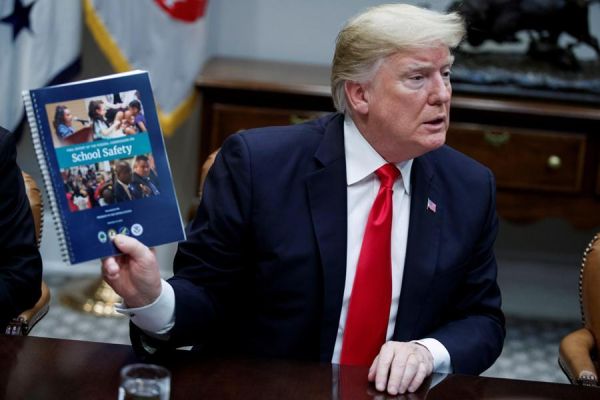
With the implementation of the Nica Acta, the U.S. government will be able to put restrictions on loans from financial institutions destined for Nicaragua
U.S. President, Donald Trump, signed the Nicaraguan Investment Conditionality Act (Nica Act) on Thursday, that will impose sanctions on the government of President Daniel Ortega. The Nica Act passed through the United States Congress on Tuesday, Dec. 12th.
In November, President Trump signed an executive order to personally sanction specific members of Daniel Ortega’s government. With the implementation of the Nica Acta, the U.S. government will be able to put restrictions on loans from financial institutions destined for Nicaragua.
Nicaraguan President Daniel Ortega has rejected this decision, while a large percentage of the Nicaraguan people also reject it, as it’s considered to be detrimental to the Nicaraguan democracy, according to a survey by M & R Consultores.
On Wednesday the Nicaraguan legislative power, with 70 out of 92 votes, issued a decree that dissolved five Non-Governmental Organizations (NGO), accused of having played an important organizational, financial and leadership role in the coup d’etat attempt that created a crisis in Nicaragua and went from April 18th until July.
“In fact, as widely demonstrated, NGOs received large sums of money from government agencies in third countries and seemingly private structures, but attributable to foreign parties and governments, with the aim of creating violent opposition to the Sandinista government,” wrote the Nicaraguan local media, El 19 Digital.
According to several international analysts, the protests against Daniel Ortega’s Sandinista government were financed and backed by several U.S. agencies such as the USAID and the National Endowment for Democracy (NED). “The Nicaraguan student leaders were there (in Washington) to beseech President Donald Trump and other right-wing U.S. government officials to help in their fight against Nicaraguan President Daniel Ortega,” wrote Max Blumenthal in June, explaining the situation in Nicaragua.
“To comply with these objectives (a coup d’etat), USAID allocated an approximate amount of U$D 68,414,563.00, to which was added an increase in 2016 of U$D 7,995,022.00,” according to a report entitled “How USAID prepared conditions for a soft coup against the government of Nicaragua,” published by Cuba Debate.
In November, President Trump signed an executive order declaring that the Nicaraguan Government “constitutes an unusual and extraordinary threat to the national security and foreign policy of the United States.” The Bolivarian Alliance for the Peoples of America (ALBA), the Latin American integrationist body, has rejected the attempts of U.S. administration’s mandate to interfere with the nations of Latin America. Bolivian President Evo Morales told President Ortega “(you are) not alone against imperialism,” showing his support to the Nicaraguan people.
 Escambray ENGLISH EDITION
Escambray ENGLISH EDITION





Escambray reserves the right to publish comments.